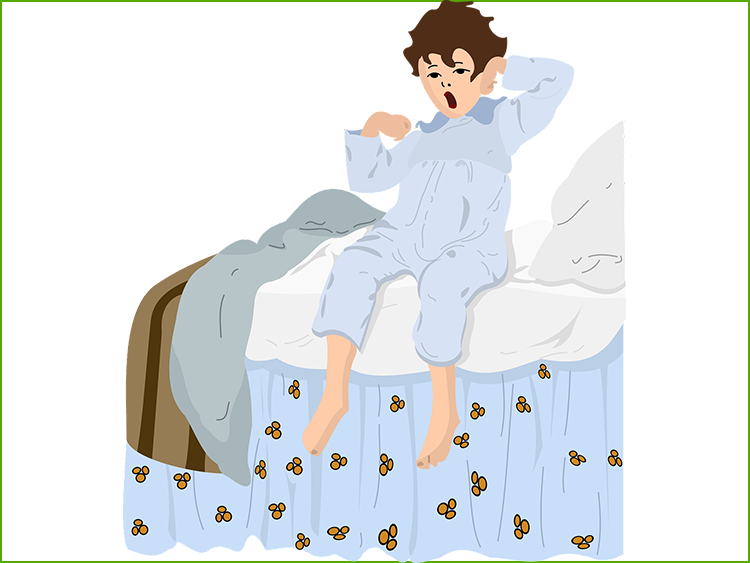
Simple tips to help you sleep better at night
Do you lie awake at night trying to coax your aching body into a comfortable position? You are not alone. Sleep disturbances have been observed in almost 80% of those diagnosed with Ankylosing Spondylitis and could be attributed to various factors like pain, stiffness and limited movement.[1] Also, symptoms of Ankylosing Spondylitis may be triggered after prolonged periods of rest, which could further impact sleep.[2]
Sleepless nights have a significant impact on your productivity during the day, so it’s essential that you get a good night’s sleep.
Try these simple tips to help you sleep better:
- Effective medications to control pain:
Be compliant to the medication schedule prescribed by your Rheumatologist.[3]Newer therapies called biologics are available that can help you combat symptoms of Ankylosing Spondylitis effectively.[4]Lesser pain and stiffness will help you get a restful sleep.[3] - Maintain the natural curvature of your spine while sleeping
Small changes in your sleeping position will help you.[2]
- Sleep on your back:Sleeping on your back may provide temporary relief from pain and stiffness.[2]
- Avoid a high pillow:Elevating your neck may alter the curvature of your spine and can aggravate pain. So, the best option is to sleep without any head support, but if you are uncomfortable, you can use a thin pillow to support your neck. Avoid tucking pillow under your back or legs.[2]
- Invest in a good mattress:Mattresses are your new best friend so choose the right one. A sagging mattress provides an uneven sleeping surface and will cost you your sleep. The ideal mattress should be firm with an even surface. (You can check if your mattress is sagging by taping a taut piece of string along the length of the mattress.) Take pains to choose a comfortable, supportive mattress and it will serve you well.[2]
- Get moving:Stretching exercises or a brisk walk early during the day will help you get better sleep at night.[2][3]
- Keep track of pre-bedtime activities:Consumption of caffeinated beverages or exposure to blue light from television or mobile screens can make it harder to fall asleep. Consider a relaxing bedtime routine and gift yourself a restful sleep and a productive day that follows.[2]
Remember, you deserve a good night’s rest so that you can tackle the day better.
Sleep well, live well. Fight The Fuse.
Ask your Rheumatologist for biologics that slow down spinal fusion.
References
- Yolbas S, et al. Turk J Med Sci 2017;47:1198-1205
- Deardoff WW.How to Sleep Better if You Have Ankylosing Spondylitis. Available [Online] at: https://www.arthritis-health.com/blog/how-sleep-better-if-you-have-ankylosing-spondylitisAccessed on 5 June 2019
- Spriggs BB. 8 Tips for a Better Night’s Sleep When You Have Ankylosing Spondylitis. Available [Online] at: https://www.healthline.com/health/ankylosing-spondylitis/better-night-sleep#5Accessed on 5 June 2019
- Sieper J, et al. Ann Rheum Dis 2002;61(Suppl III):iii8–iii18
